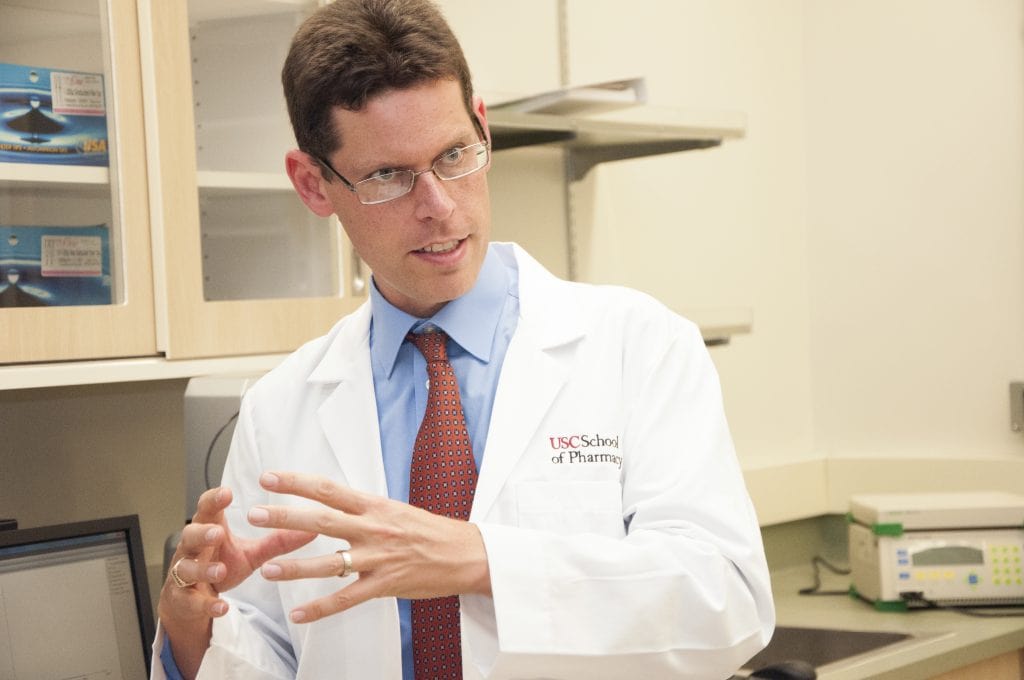J. Andrew MacKay, PhD, receives NIH RO1 grant that builds on his team’s platform to control polypeptide-based microdomains.
Assistant Professor J. Andrew MacKay knows that the next big step towards understanding and treating disease starts on an extremely small scale.
MacKay’s research on microdomains – functional structures that are 10 to a thousand times smaller than a cell – has earned him his first Research Project Grant from the National Institutes of Health (NIH). The 5-year, $1,587,885 RO1 grant is for the project entitled “Intracellular switching using genetically engineered protein microdomains.”
“By using biological materials to assemble structures, process information, and harness energy, the emerging field of synthetic biology may bridge the gap between current technology and that needed to study and intervene in disease,” explains MacKay. “Toward this futuristic goal, this project elaborates on a platform discovered by our team to control polypeptide-based microdomains.”
MacKay’s interdisciplinary team is the first to report that intracellular elastin-like-polypeptides (ELPs) generate microdomains that exert control over cellular pathways, and he hopes to be able to design microdomains for specific functions, including stimulating, deactivating or responding to target cellular processes.
“Through design, we envision microdomains as tools that turn ‘off’ or ‘on’ biological pathways with high spatio-temporal control,” he says.
The study has three specific aims: manipulation of endocytotic pathways using microdomains; interrogating cell signaling using ELP microdomains; and expanding microdomain technology.
“When completed, this project will deliver a biomolecular toolbox of broad utility to study biological processes associated with human disease,” says MacKay.
The project’s co-principal investigators are Gavin S. Herbert Professor and Executive Vice Dean Sarah Hamm-Alvarez and Associate Professor and Chair Curtis Okamoto.
This grant represents the next phase of research for MacKay and his team, who have been developing polypeptide-based drug carriers that can be used in the treatment of cancer, ocular diseases and other human diseases.
“Our goal is to repackage drugs into bioresponsive nanocarriers, which activate site-specific drug release and reduce toxicity,” says MacKay, whose overall goal is to formulate and evaluate successful carrier strategies for clinical translation.
The NIH grant builds on MacKay’s previous funding, provided by the US Army Telemedicine and Advanced Technology Research Center, the Stop Cancer Foundation, the American Cancer Society, the USC Research Center for Liver Disease, the USC Ming Hsieh Institute, the Whittier Foundation, the Wright Foundation, the SC-CTSI, and the USC School of Pharmacy.


